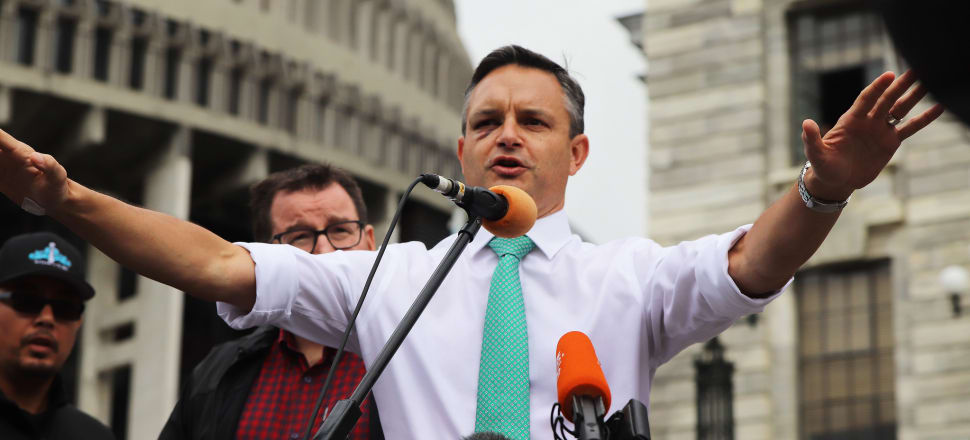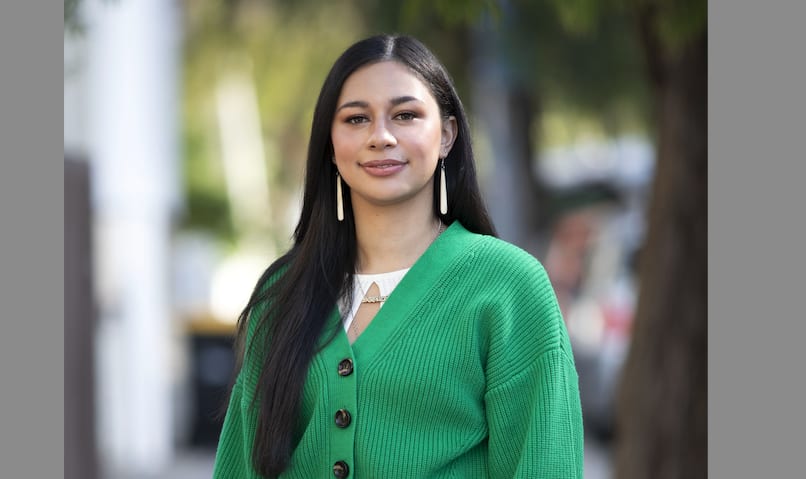
James Shaw’s surprise decision not to run as the Green Party’s Wellington Central candidate raises questions about his future in Parliament – and it also adds to the uncertainty around who exactly will claim the blue ribbon seat, writes Sam Sachdeva.
On more than one occasion last year, James Shaw publicly reflected on his commitment to lead the Green Party “into government and safely out the other side’’ – a pledge he made during his successful campaign for the co-leadership in 2015.
With the surprising news that Shaw will not contest the Wellington Central electorate for the Greens at this year’s election, it seems as if the three-term MP may be starting to contemplate life on the other side.
READ MORE: * James Shaw opts against Wellington Central run * Soul-searching for Shaw and would-be mutineers * Shaw successfully weakens own climate law
Not that his decision to step aside in favour of Wellington city councillor and rising Green star Tamatha Paul was framed as such. Instead, Shaw said the decision would allow him to focus on his roles as party co-leader and climate change minister.
Finance Minister and incumbent Wellington Central MP Grant Robertson offered a similar rationale for his own decision to move to a list-only role ahead of October 14.
But in both cases, not holding an electorate seat would make it easier for each politician to slip out of Parliament in the wake of an unfavourable election result and a potential move back into opposition.
Shaw’s announcement is curious given that just one week ago, in the wake of Robertson’s own news, he had indicated in a Facebook post his desire to be re-selected as the Green candidate for Wellington Central (albeit with the caveat that final decisions were yet to be made).
With Robertson out of the way, and National Party deputy leader Nicola Willis having moved her sights to the Ōhāriu electorate, Shaw would have been left as the most experienced and highest-profile runner in the race with a slim but not inconceivable chance of wresting the seat away from Labour.
Given the sudden change of heart, and the co-leader’s fraught history with a vocal subset of the party’s supporters, it’s tempting to wonder whether Shaw’s decision was either the result of, or designed to precipitate, some form of selection challenge.

But Green supporters have emphasised the loyalty felt towards Shaw by members of the party’s Wellington Central branch, while his decision to personally nominate Paul seems designed to head off any suggestions of unrest (for his part, Shaw told The Spinoff his U-turn was the result of weighing up the pros and cons of running for the seat, as well as Paul’s willingness to put her name forward).
Certainly, it would be hard to blame Shaw for wanting to avoid extra burdens if he does decide to stay on in politics after the election.
It has been a tumultuous eight years as co-leader, including the resignation of co-leader Metiria Turei just weeks out from the 2017 election and a 2019 assault while walking to Parliament.
Persistent rumblings of member dissatisfaction with Shaw’s leadership culminated in his de facto deselection as co-leader last July, an embarrassing albeit temporary setback (he was re-elected two months later with a whopping 97 percent of the vote).
As climate change minister under Jacinda Ardern and now Chris Hipkins, Shaw has had to deal with Labour watering down some of his policy plans and claiming credit for others – the perennial risk for minor parties in a coalition.
Yet he has plenty of reason for satisfaction: he held the Greens together as its sole leader following Turei’s resignation, then shepherded the party through its first stint in government to an improved performance at the 2020 election, in addition to overseeing the zero carbon act’s passage into law.
Writing Shaw’s political obituary may be premature: a Labour-Greens bloc is still close to the 60-seat threshold in most public polling, and he has previously indicated he would do what he could to support the Zero Carbon Act in opposition. But should he indeed decide to call time after October 14, it would come with achievements greater than his critics are willing to concede.

As for Wellington Central, a relatively prestigious seat given it is home to Parliament, there is plenty to play for with Robertson, Willis and Shaw – the top three vote-getters at the last two elections - out of the running. MMP may have made individual electorate races less important, but there can still be plenty of drama as fans of the classic Kiwi political documentary Campaign will attest.
In Paul, the Greens have a charismatic and highly rated politician who has already made waves in Wellington at a council level.
The hope will be that she can replicate Chlöe Swarbrick’s successful bid for Auckland Central in 2020, as well as Green-backed independent Tory Whanau’s run for the Wellington mayoralty last year, by mobilising volunteers to get out the vote in a highly left-wing electorate with the highest share of 20- to 24-year-olds in the country.
By forgoing a spot on the Green Party list in favour of an ‘all or nothing’ approach, Paul is also creating an incentive for Labour-leaning voters to back her in a potential two-for-one deal.
But Paul lacks the name recognition of both Swarbrick and Shaw, the latter of whom never got within 10,000 votes of Robertson despite his consistently improved performance at each election. It’s also unclear whether the Greens have the resources for two high-profile electorate races (leaving aside Julie-Anne Genter’s bid for Rongotai).
That same daunting margin is why National is unlikely to have high hopes of coming through the middle to take the seat in a three-way contest with Labour and the Greens.
The party hasn’t held the seat for more than four decades, and lacks an obvious candidate from within its current caucus. With plenty of traditionally National-held electorate seats lost in the red wave of 2020, Wellington Central is likely towards the bottom of the party’s hit list.
Even with the uncertainties resulting from Shaw standing aside and Paul’s run, there will still be plenty of contenders lining up for what has traditionally been a safe Labour seat.
That leaves Labour to choose its candidate and heir apparent to Robertson, with several intriguing options.
Newly appointed health minister Ayesha Verrall is based in Wellington and has swiftly risen up Labour’s ranks during her first term as an MP, leaving her well positioned to hold an electorate as part of the party’s next generation.
However, Verrall will have her hands full bedding in the Government’s health reforms, while it’s unclear whether she has the appetite for retail politicking that leads politicians to gravitate towards a seat instead of a list-only spot.
Ibrahim Omer, New Zealand’s first African MP and a close friend of Robertson’s, is another obvious contender and would presumably have the finance minister’s support.
Omer is spoken of highly by government ministers, but his selection could be a risk for Labour given his lack of profile compared to Robertson.
The same could apply to one potential dark horse, Camilla Belich, who ran for Epsom at the 2020 election but grew up in Wellington. With Belich’s husband Andrew Kirton appointed as Hipkins’ new chief of staff, she could have further incentive to move to the capital, although she has also been touted as a potential replacement for Ardern in the safe Mount Albert seat.
There is also former Labour Party president Claire Szabó, who has reportedly moved from Auckland to Wellington and has repeatedly refused to rule out a run for Parliament.
Even with the uncertainties resulting from Shaw standing aside and Paul’s run, there will still be plenty of contenders lining up for what has traditionally been a safe Labour seat.







